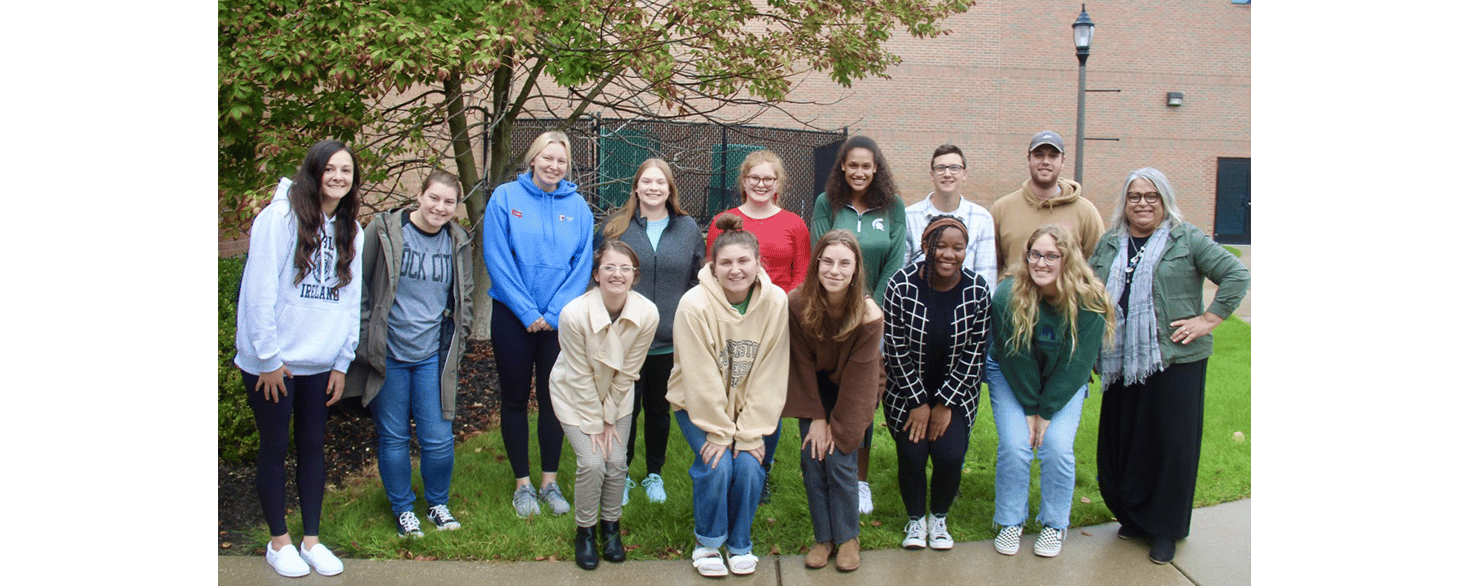
Social science is a broad field about the study of people, and it can extend to a wide variety of topics like psychology, animal behavior or political sciences. Over time, misconceptions have arisen about what social sciences are and how a social science degree applies to the world outside a classroom. To help clear things up, here are five common misconceptions about social sciences debunked!
Myth 1: You have to have a graduate or doctoral degree to do anything.
When you’re in high school and thinking about the future, it can be easy to focus on the immediate next step of getting a four-year college degree. If you’ve expressed interest in a job in social sciences, you might have heard people mention the need for schooling beyond those four years. Currently, you do need a graduate degree to be a licensed practitioner—think counselor, social worker, lawyer, etc.—but that doesn’t mean that you need a graduate degree to find any job working in the social sciences. Some related positions you could hold with a bachelor’s degree in social science could be an HR manager, market researcher, emotional behavioral technician or organizational consultant, just to name a few.
Myth 2: Psychology and sociology are the same thing.
The shortest answer to this myth is that sociology is about studying institutions and society, while psychology focuses on the individual experience. They’re related, but not the same. At Cornerstone University, we offer two majors in the Social Science Division: social work and psychology. Students in our social work track focus on how society and different institutions like Child Protective Services, hospitals and schools specifically affect the individual.
In our psychology track, students focus on a specific individual concept, such as child and adolescent development, counseling or an applied psychological approach to real-world problems.
The cool thing about social sciences in general is that there is overlap and you aren’t necessarily locked out of a field because your degree says psychology or social work, meaning someone with a social work degree is considered capable of counseling and someone with a psychology degree could be qualified for some institutional roles like school counseling. Additionally, at Cornerstone, each major’s students are cross-trained in both sociology and psychology to provide a balanced perspective on how institutions affect individuals and vice versa.
Myth 3: You won’t make any money.
This myth is more prevalent because social science is considered both a helping and an academic field, and it is not uncommon for individuals in these fields to be a median or below earner. Still, social science is a rapidly growing field with the U.S Bureau of Labor Statistics estimating an 8% job increase over the next decade, creating about 113,000 new jobs. In the 2022 job market, psychologists and sociologists are proving to be incredibly valuable. Consequently, the growing advocacy of individual emotional wellness and the growing application of social science leads to an ever increasing average salary.
Myth 4: Social science isn’t real science.
This myth usually pops up because social science tracks rarely focus on advanced biology or chemistry classes like a traditional physical science course would. It doesn’t account for the fact that social sciences heavily emphasize the importance of the scientific method, including observation, experimentation and practice. Social scientists do all these things, just through relational connections with people (which I personally find so much cooler and less creepy) rather than studying lab rats.
Myth 5: A degree in social science means you have to be a therapist.
This is another common misconception about a social science degree. Absolutely no shade to counseling, but there is a lot that someone with this degree can do outside what is considered a “clinical social science practice.” At its core, social science is the study of people, cognition (or mental processes) and behavior. The field has a wide application to HR and institutional management, marketing, criminal justice, politics and even animal psychology for those who aren’t rodent-queasy like me. Pretty much any environment you can imagine where people (and sometimes animals) interact, social science can be applied to it.
What Does Your Future in Social Sciences Look Like?
The cool thing about social science is that it is an incredibly relational field. As a Cornerstone student, my experience here has been super uplifting, and I have been surrounded by faculty who care about me as well as provide me with relevant and challenging course work to prepare me for a future in the field of psychology.
If you are interested in social sciences at Cornerstone, I encourage you to learn more about our academic majors. You can also stay connected to the Social Science Division, by following the Social Science Division on Instagram!








